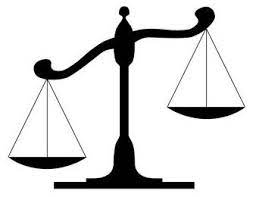Woe to Those Who Make Unjust Laws
10: 1-4
Woe to those who make unjust laws DIG: What was the purpose of the laws made by the rulers of Isra’el? What did the Torah have to say about this? What three questions did the LORD ask the leaders of the northern Kingdom?
REFLECT: Understanding what the Torah says about the poor, the widow, and the orphan, what is your responsibility toward them? What darkness reached its greatest extent before God came to you?
In the final stanza of his poem, Isaiah described the corrupt leaders in Isra’el who were perverting the cause of justice and righteousness (9:6-7). This was, and is, especially offensive to ADONAI who is just and seeks to protect the helpless. It is one thing when competition pits brother against brother. It is quite another, consciously, to enrich themselves at the expense of the helpless. As a result, a woe was pronounced on them. If the leaders of the northern Kingdom refused the rule of the Word of God, they would end up under immoral human rule.

The emphasis is on the unjust legality. Woe to those who make unjust laws, to those who issue oppressive decrees (10:1). The word oppressive translates amal, and gives the sense of being unbearable. In the book of Judges we read: But the Israelites said to ADONAI, “We have sinned. Do with us whatever you think best, but please rescue us now.” Then they got rid of the foreign gods among them and served the LORD. And He could bear Isra’el’s misery no longer (Judges 10:16). The woe was decreed upon the unjust legislators. The judges made unrighteous decrees, and the scribes wrote them into law to deprive the poor of their rights and withhold justice from the oppressed of My people, making widows their pray and robbing the fatherless (10:2). The aim of this legislation is to allow them legally to exploit the poor, the widow, and the orphan, all under the mask of legality. While the Torah decreed special protection for these groups (Deuteronomy 10:18, 26:5-7; Psalms 10:14, 68:5, 146:9; Exodus 22:22), these unjust judges made them a special object of unjust laws.
The judgment itself is given in the sense of three rhetorical questions. First: What will you do on the day of reckoning, when disaster comes from afar (10:3a). In other words, what good will all of your ill-gained wealth do you when the Assyrian army comes? Secondly: To whom will you run for help? They will have no one to run to, because they had already made Judah, the one place where they might have found refuge, their enemy. And thirdly: Where will you leave your riches (10:3b). Created beings are under the hand of the Creator to whom they must, sooner or later, give account. To think otherwise, is at best, foolishness, and at worst, insanity.
There will be no place to hide their ill-gained wealth. Nothing will remain but to cringe among the captives or fall among the slain (10:4a). And if they thought that there might be a pause in judgment after this, Isaiah prophesied: Yet for all this, His anger is not turned away, his hand is still upraised (10:4b). The privileged of society who had enriched themselves at the expense of the helpless would suffer the same fate as everyone else. They would be huddled among the captives, lying in heaps of the dead. Before the upraised hand of the LORD, status, power and wealth mean nothing.
The point of this, and the previous three stanzas’, is that darkness must reach its greatest extent before the great light can come (9:2). Even though ADONAI would send His judgment against Isra’el, the promise of the return of the remnant would hold true. Two points must be remembered about the remnant. First, a remnant will always survive, and secondly, God always punishes the Gentile nation that He uses to punish the Jews.



Leave A Comment